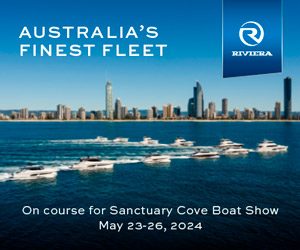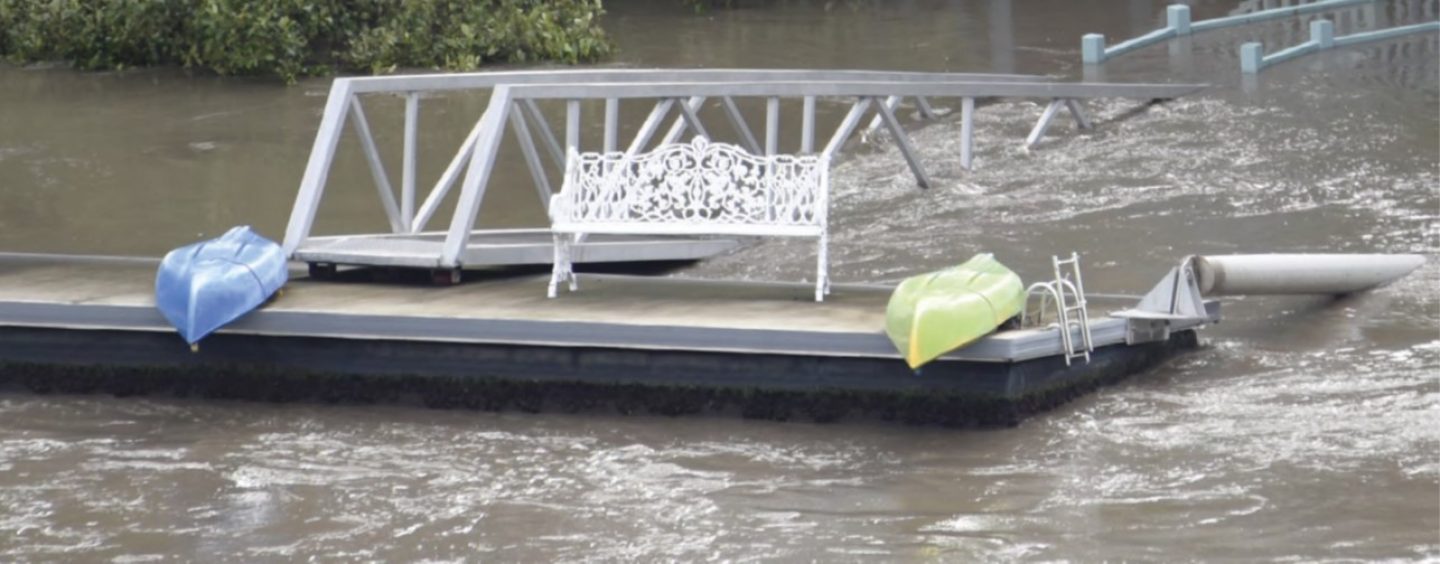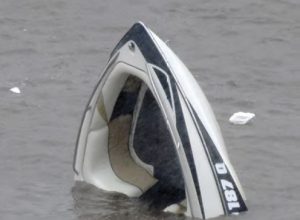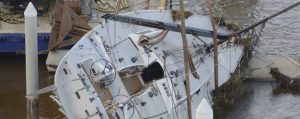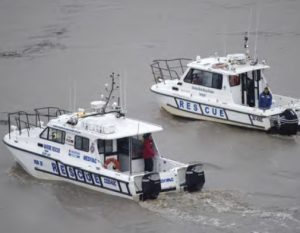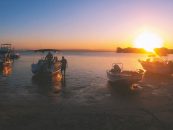By Dr. Anthony Marinac, Solicitor Advocate and Director
Another wet season has come and gone, and this year’s season was a doozy. A number of tropical cyclones threatened boatowners in the north, particularly Tropical Cyclones Seth and Tiffany, and then in February much of South-East Queensland was affected by severe flooding. Inevitably, this has led to vessels becoming damaged, and in some cases lost – it might be many years before we next see one of Brisbane’s CityCats on the bottom of the river.
What went right, and what went wrong for boat operators this summer? And what can be learned for future seasons?
FACTOR ONE: INFORMATION
Information is key. Unless boat owners have access to the right information at the right time, it is impossible to make good decisions about the safety and security of your vessel.
Access to the necessary information starts well before the storm season, though. Most popular boating areas in Queensland have an extreme weather event contingency plan established by Maritime Safety Queensland. It should be part of your annual maintenance process to review your local plan before the start of the extreme weather season. These plans will include important information such as the relevant emergency VHF channels and phone numbers.
Second, it should be a routine part of your day during the extreme weather season to check in with the Bureau of Meteorology website to identify watches and warnings which may affect the safety of your boat. Don’t wait to learn about these things in the media or on Facebook! Often the BOM has been tracking a weather system for some time before the general media takes notice.
Third, ensure that you know how to access the Harbourmaster’s Directions or any similar instructions from the government agencies regulating your local waters. It’s crucial that you comply with any restrictions on boating activity in the leadup to an extreme weather event, during the event itself, or during the recovery after the event.
FACTOR TWO: PREPARATION AND PLANNING
Preparation and planning is the key to all safe boating. Surviving extreme weather events is no different. There is a range of things you can think about ahead of time:
Have you updated your contact information with Maritime Safety Queensland?
Have you reviewed your mooring arrangements to ensure that your vessel is securely moored and has the best chance of surviving a weather event?
Have you removed all unnecessary equipment (including things like furled sails, biminis, dinghies, fishing gear, and anything else that might tear loose and become a hazard)?
Have you checked watertight issues? Are your bilges operating, and have you pumped them out prior to the season? Is deck water escaping through the freeing ports or other self-draining holes freely?
If you’re going away, there are additional important steps to take. Ensure that someone who is not going away, and who is sufficiently licenced to operate your vessel, has agreed to monitor the vessel in your absence. Continue to monitor your information sources and communicate with that person as necessary. And most importantly, ensure that your local VMR, Harbourmaster’s Office or Marina Manager knows about your absence and has the contact details for you and for whoever is watching the boat for you
FACTOR THREE: THE HEALTH OF YOUR INSURANCE POLICY
Far too often, boat owners who have inadequate insurance only find out that it’s inadequate when they need to make a claim. Typically, boat owners will obtain insurance when they obtain the boat, but will then leave their insurance policy on “set and forget”, simply paying the premium once a year and not giving the policy much thought. This can be dangerous!
Participants in an insurance contract have what is called a duty of utmost good faith, which means you have to inform the insurer, and keep them informed, about things that may affect their risks of insuring you. For instance:
Have you spoken to your insurer or broker every time you have added a new major piece of equipment to the vessel? If not, it may not be covered!
Have you kept up to date with maintenance of the hull, engines, and rigging? If not, they may not be covered!
Have you changed the vessel’s mooring or storage arrangements? If not – you guessed it – they may not be covered.
Most importantly of all, if you have started using your recreational vessel for any commercial purpose, your recreational policy may well be meaningless. You may not be covered at all!
MANAGING YOUR CLAIM
If the worst does happen and you need to make a claim, remember that duty of utmost good faith. Here’s your plan of attack:
Do everything you can to ensure the safety of life, the safety of your vessel, and the safety of other people’s property.
Complete your insurance company’s claim form in as much detail as possible, remembering that you have to tell them everything – including things that might potentially count against you.
Discuss with the company whether, and when, to commence repairs or replacement.
Making an insurance claim can be a massively stressful experience – even if the insurer accepts the claim and ultimately covers the costs. Pacific Maritime Lawyers are experienced at representing boat owners who are making insurance claims. You don’t need to be in a dispute with the insurer. In fact, getting us involved might prevent a dispute from arising in the first place.
Stay safe out there! We hope you won’t need us, but if you do, call Pacific Maritime Lawyers on 1300 797 627 or email us at info@pacificmaritimelawyers.com.au
Published in print October-December 2022


